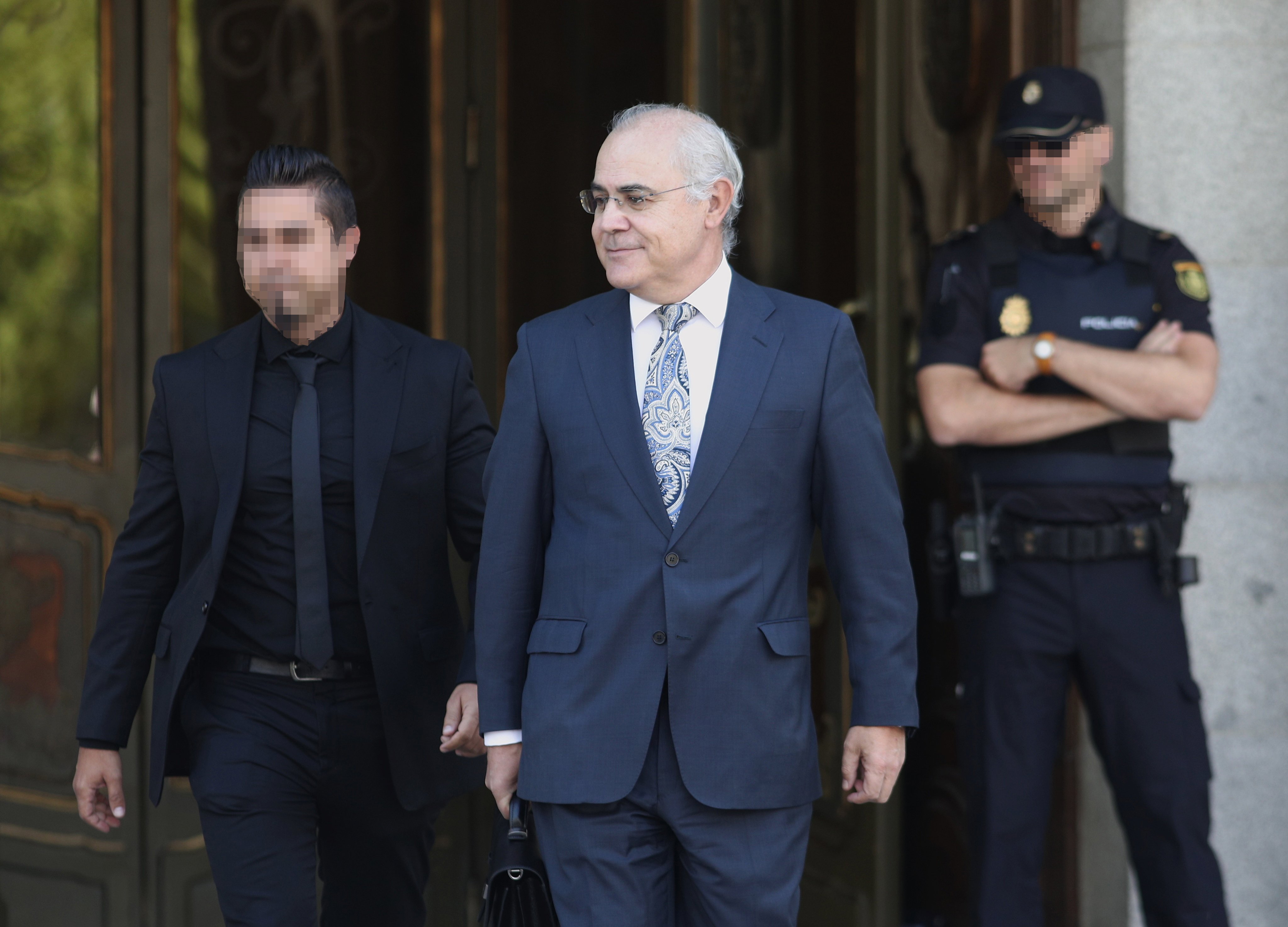The appeals chamber of the Spanish Supreme Court has confirmed the ruling made by judge Pablo Llarena in January this year on the new charges to be applied to former Catalan president Carles Puigdemont and former ministers Toni Comín, Clara Ponsatí and Lluís Puig, dismissing the appeals presented by their defence lawyers, which among other demands, argued that the entire judicial action should be annulled, as well as claiming that the 'mitigated' misuse of funds variant should be applied. This was the last opportunity the exiled Catalan leaders had to modify the prosecutions for disobedience and 'aggravated' misuse of funds dictated by Llarena following the reform in December last year of the Spanish Penal Code. The aggravated variant can be punished by up to 12 years in prison. In general terms, the appeal chamber considers that the penal code reform that eliminated the offence of sedition and modified the misuse of public funds definitions "does not make less clear the scenario of the cause of the legal process" because, as they write, "the reasons for the prosecution have not been modified".
'Mitigated' misuse of funds, not seen
Thus, the court ratifies Llarena's decision to prosecute Puigdemont and Comín for disobedience and aggravated misuse of funds; Ponsatí for disobedience and Puig only for aggravated misuse of funds. In a 132-page ruling, the chamber dismisses all the lawyers' arguments, reiterates explanations from previous resolutions and insists that the reform of the crime of misuse of funds envisaged in the new Penal Code does not in any way alter the prosecution for this crime. According to the court, there is nothing to justify a switch to the mitigated version of misuse of funds, given the sentence dictated in 2019 by the Supreme Court's criminal chamber. "It is not altered by the mention of the profit motive contained in the new wording, just as it is not appropriate to include the actions of the defendants in the new mitigated subtypes" that have been included in the Penal Code reform. Thus, the Supreme Court endorses the theses of Llarena, who concluded that the misuse of funds for Catalonia's October 1st referendum had a profit motive and that, in this case, there is no room for possible mitigating factors in the crimes, as proposed by the inclusion of a less severe variant in the Penal Code reform, which provides for reduced penalties if there is no personal or third-party enrichment involved.
Spanish arrest warrants for the exiles, backed
With all this, the court endorses Llarena's decision to maintain the arrest warrant within Spanish against Puigdemont because it considers that if the former Catalan leader does not have a "collaborative posture with justice" he must "assume the consequences that are entailed by a failure to appear". In this regard, the judges note, "arrest warrants do not imply an arbitrary decision by the investigating judge". In addition, as was ruled in previous resolutions of the Supreme Court, the appeals chamber maintains that the court is competent to try the Catalan leaders, it assures that Pablo Llarena has not lacked impartiality during the long judicial procedure and that parliamentary immunity of the MEPs has not been breached. In the court's opinion, the exiles acquired the condition of immunity as MEPs after "having already initiated the criminal procedure for actions not related to those functions". Similarly, the three appeal judges deny that the arrest warrants are intended to restrict the right to political representation and reject the demands by the exiles' defence teams that another request for parliamentary immunity to be waived must now by sent to the European Parliament.
Public disorder discharges, rejected
At the other extreme, the chamber, made up of judges Vicente Magro, Susana Polo and Eduardo Porres, also dismisses Vox's attempt to elevate the charges for disobedience into public disorder, arguing that "the elements of the two types of crime are different" and that "the contested ruling places it more accurately in disobedience". "The defendants deployed or promoted civil disobedience and an institutional insurrection aimed at altering the constitutional order, without any call to violence, not public disorder by means of violence," ruled the three judges who endorsed Pablo Llarena's prosecution decisions. On this point, they mention that the sentencing court led by Manuel Marchena had already resolved this issue in the February ruling in which it refused to include an offence of public disorder against those convicted over the Catalan referendum of October 1st 2017. He too concluded that the appropriate charge was disobedience.

